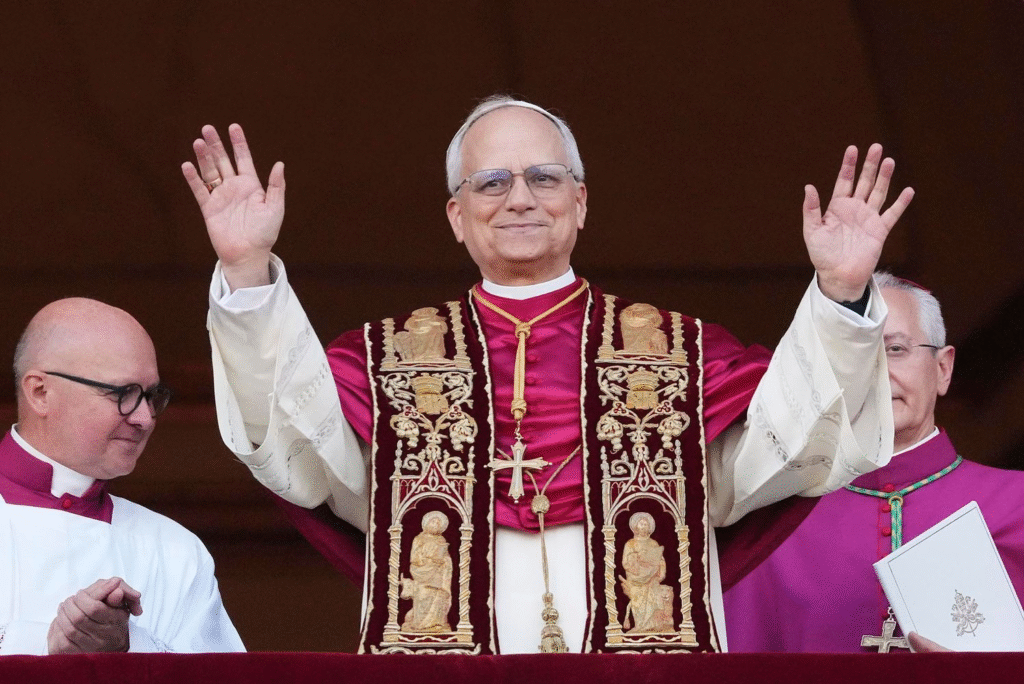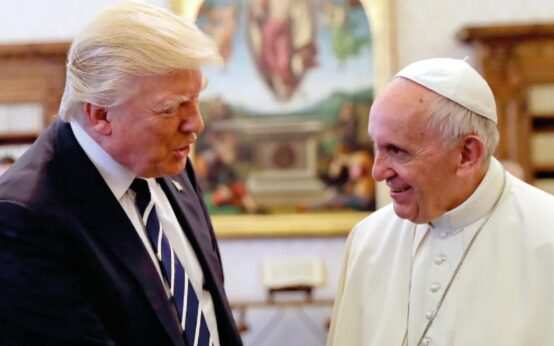First American Pope Chosen: Everything You Need to Know
Vatican City announced a groundbreaking moment on May 8, 2025, as Cardinal Robert Francis Prevost was elected the 267th pope, becoming the first American to lead the Roman Catholic Church.

Taking the name Pope Leo XIV, his selection stunned many, breaking a long-standing hesitation to choose a pope from the United States due to its global influence.
White smoke rose from the Sistine Chapel, signaling the decision after two days of secretive voting. Crowds in St. Peter’s Square cheered as Prevost appeared on the balcony, delivering a message of peace and unity.
World leaders, including U.S. President Donald Trump and former President Barack Obama, congratulated the new pontiff, marking the historic shift for the 1.4 billion Catholics worldwide.
Who Is Pope Leo XIV?
Robert Francis Prevost, 69, was born in Chicago, Illinois, and graduated from Villanova University with a mathematics degree in 1977.
A member of the Augustinian order, he spent over 30 years as a missionary in Peru, where he became a bishop and a naturalized citizen. Prevost rose through the Church ranks, leading the Augustinian order before Pope Francis appointed him cardinal in 2023.
He served as Prefect of the Dicastery for Bishops, overseeing the selection of bishops globally, and as president of the Pontifical Commission for Latin America. His work in Peru focused on serving the poor, earning him praise as a pastoral leader with a humble approach. Vatican experts note his alignment with Francis’ emphasis on social justice, though he faced criticism for his handling of priest sexual abuse cases.
How Was He Selected?
The papal conclave, a secretive process, involved 135 eligible cardinals locked in the Sistine Chapel with no outside contact. Voting began after Pope Francis’ death in April 2025 at age 88. Cardinals cast ballots until a candidate secured a two-thirds majority.
Prevost’s election surprised many, as betting markets gave him only a 0.6% chance, favoring figures like Italian Cardinal Pietro Parolin. Despite conventional wisdom against an American pope, Prevost’s global experience in Peru and his role in Vatican administration likely swayed voters.
The process, steeped in tradition, culminated with Prevost choosing the name Leo XIV, a nod to past popes known for social reform. He addressed the crowd in Spanish and Italian, urging Catholics to “move forward without fear.”
Background and Ideologies
Prevost’s ideology blends compassion for the marginalized with traditional Catholic teachings. His decades in Peru shaped his commitment to the poor, mirroring Pope Francis’ focus on social justice. He has spoken against abortion and the ordination of women, aligning with Church doctrine.
On gender issues, he criticized “gender ideology” in 2012, calling it confusing for promoting “genders that don’t exist.” Yet, his first speech as pope emphasized a Church that “builds bridges” and welcomes all, suggesting a pastoral tone.
Prevost supports climate action, urging followers to sign a Catholic climate petition, a stance at odds with some U.S. political figures like Trump, whom he previously criticized.
His choice of the name Leo XIV evokes Pope Leo XIII, whose 1891 encyclical championed workers’ rights, hinting at a focus on economic justice. However, his past handling of abuse allegations remains a point of contention, with critics questioning his transparency.
Global Reactions and Challenges Ahead
The election sparked varied responses. Obama called it a “historic day” for the U.S., while Trump expressed eagerness to meet Prevost despite the pope’s prior critiques of his administration.
Russian President Vladimir Putin and U.N. Secretary-General António Guterres also sent congratulations, hoping for continued dialogue. Some conservative Catholics, especially Trump supporters, expressed unease over Prevost’s social media posts, which included pro-immigrant and anti-death penalty views.
The new pope faces a divided Church, with progressives pushing for inclusivity on issues like LGBTQ+ rights and conservatives seeking a return to tradition. Prevost’s call for unity will be tested as he navigates global challenges, including polarization, war, and the Church’s role in modern society. His experience in Peru and Vatican leadership positions him as a globally minded leader, but his ability to balance competing factions remains uncertain.
In his first address, Pope Leo XIV quoted Francis, urging Catholics to build a Church that unites. His agenda will likely prioritize dialogue, poverty alleviation, and addressing the Church’s internal divisions. As the first Augustinian pope, his election marks a new chapter for Catholicism, with the world watching how an American will shape the Vatican’s future.


 Papal Conclave Begins: Cardinals Gather to Elect New Pope
Papal Conclave Begins: Cardinals Gather to Elect New Pope  Trump Posts AI Pope Image, Sparks Controversy
Trump Posts AI Pope Image, Sparks Controversy  King Charles and Queen Camilla met Pope at the Vatican
King Charles and Queen Camilla met Pope at the Vatican  Pope Francis to be discharged from the hospital
Pope Francis to be discharged from the hospital